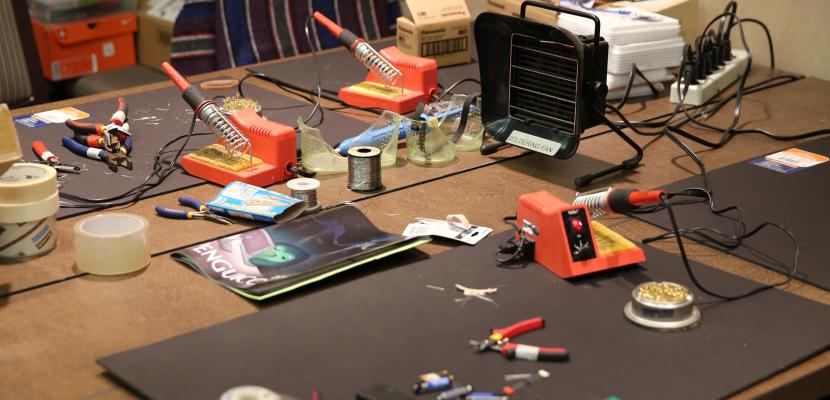
Circular economy training for the makerspace communities

About this good practice
Makerspaces and similar creative hubs are growing as dynamic environments that foster technical skill development, prototyping, and hands-on experimentation. Despite their widespread presence, sustainability and circularity are not yet fully integrated into daily activities or creative projects. Many makerspaces still lack knowledge on how to adopt circularity in practice or create circular products. Therefore, support for training and capacity development is in need, as makerspaces serve diverse communities, including young designers, aspiring entrepreneurs, students, unocupied elders and many more.
To bring the ideas and specific skills of the circular economy closer to makerspaces and their communities, a training program “Circular makerspaces” has been developed. The program consists of 9 topics covering a wide range of CE-related subjects: circular value chains, waste as raw materials, environmental impact assessment, circular business models, design thinking, circular design strategies and other. The program can be used for a two-week intensive course or adapted for individual makerspace needs, such as topic-specific workshops. Theoretical material is complemented by practical activities and methodological guidance for trainers, ensuring accessibility to a wider audience.
The main beneficiaries are local makerspaces and their community members, incl. makers, designers, students, residents, young companies, local authorities or universities (as makerspace owners).
Resources needed
Training programme is freely available in English, remaining resources:
• access to a facility with tools, equipment, and materials (e.g., makerspace, design studio);
• 80 hours of work for full training implementation + additional hours to prepare for the activities (e.g., training translation).
Evidence of success
Over 10 months of running the “Circular makerspaces” program in 5 countries, more than 300 participants completed the course, incl., makers, students, public servants, business consultants, entrepreneurs and other. The training was evaluated positively by the majority of participants who were also inspired to learn more about the circular economy.
Potential for learning or transfer
Makerspaces, or other creative, design spaces, are getting increasingly popular. They are usually partly funded by the municipalities, universities or employment services. For regions that have such publicly accessible spaces, the transfer of training is relatively easy, as all the necessary training materials are already in place. All that is needed is to allocate personnel who would investigate and adapt the program to local needs.
The implementation of this program not only builds and strengthens the capacity of makers and designers to apply the principles of the circular economy, but also builds wider communities of circular practice (e.g. when a makerspace cooperates with a supplier of secondary raw materials; when university brings students to a makerspace to work with circular projects).
The training program is currently being offered in a few makerspaces located in Lithuania, Latvia, Norway, Germany and Denmark.
Further information
Good practice owner
You can contact the good practice owner below for more detailed information.

Public Institution Lithuanian Innovation Centre

